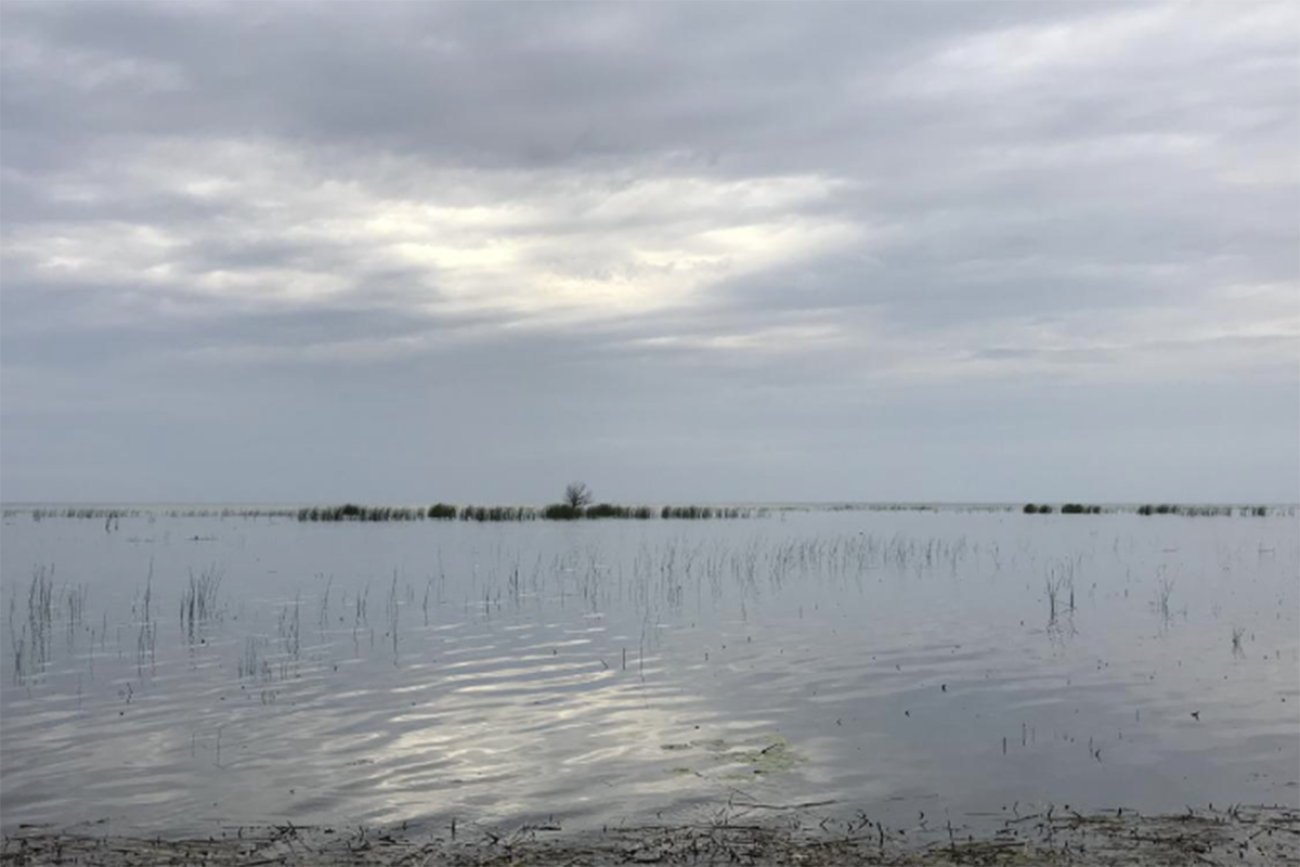As rain patterns evolve in Michigan, farmers adjust to droughts and deluges

LANSING – Seasonal weather patterns are changing and farmers are facing new challenges as a result, including how to handle their water management and irrigation practices.
Dennis Kellogg, a crop farmer in Ithaca, has felt the impacts of increased rain and longer droughts.
“When we get some of these rains, it seems like the amount of rain is greater than what it has been in the past,” he said. “We have added additional tile to our farmland and improved our drainage outlets to make them bigger. That has helped some, but we still have those low areas that will flood over.”
Related:
- EPA promised to address environmental racism. Flint is still waiting
- Michigan Senate approves 2040 deadline for carbon-neutral energy
- Michigan Democrats unveil push for tougher polluter pay laws
Michigan and the entire Great Lakes region are seeing major changes in rain and water volumes, said Laura Campbell, the senior conservation and regulatory relations specialist for the Michigan Farm Bureau.
“We’re getting more intense precipitation in the spring and fall, which is not a great time for us to have huge gullywasher rains, but we’re also seeing drier conditions in the summer,” she said. “This creates problems that our traditional conservation practices aren’t really able to handle.”
The months of May and June brought long periods of drought, which affected Kellogg’s crops.
“We wondered if we were going to get a crop planted and be able to get it out of the ground and raise anything,” he said. “As it turned out, we had a long fall without a frost, so we do have a crop.”
While it isn’t the largest crop Kellogg has raised, he is grateful to have a harvest at all.
There are more than 46,000 farms in Michigan, and 99 percent of them are family owned. The state is one of the country’s most agriculturally diverse, growing over 300 products, according to the Michigan Agriculture Council.
Agriculture is highly sensitive to the climate, with changes in the growing season having a positive effect on farmers in certain areas and a negative impact on others, according to the Environmental Protection Agency.
An increase in precipitation can be detrimental for fields as it can cause heavy erosion and a lack of soil nutrients. Increased soil runoff into streams and lakes also harms water quality, the agency said.
“A lot of this extra water coming in is causing problems that farmers have never had before in Michigan in terms of providing irrigation management for their farms,” Campbell said. “It’s also becoming a problem when we start to get longer and longer drought periods.”
A 2022 report by the National Oceanic and Atmospheric Administration projected that Michigan would see more extreme rainfall events, especially in the winter and spring, possibly increasing the number of floods.
“When you get too much rain, nothing really compacts the soil like a raindrop,” Kellogg said. “Most of our land would classify as sandy clay and that gets a lot of compaction. We have to be careful when we’re out there so we don’t add to that compaction by running farm equipment over it.”
Increased spring flooding could potentially delay planting due to damaged soil structure, according to the report. It could also negatively impact crop yields.
The Farm Bureau is creating technical and financial support programs and looking to find new methods of water management.
“We’re looking a lot more at building soil health and creating ways for soil to become more absorbent,” Campbell said. “We’re also working on edge-of-field practices to slow water down when it hits the ditches so we’re not sending a huge flush of nutrients down into our Great Lakes.”
She said, “Being surrounded by the lakes, farmers in Michigan are uniquely positioned to be aware of water quality issues and how they tie to climate change.”
This story was originally published by the Capital News Service.
Michigan Environment Watch
Michigan Environment Watch examines how public policy, industry, and other factors interact with the state’s trove of natural resources.
- See full coverage
- Subscribe
- Share tips and questions with Bridge environment reporter Kelly House
Michigan Environment Watch is made possible by generous financial support from:
Our generous Environment Watch underwriters encourage Bridge Michigan readers to also support civic journalism by becoming Bridge members. Please consider joining today.
See what new members are saying about why they donated to Bridge Michigan:
- “In order for this information to be accurate and unbiased it must be underwritten by its readers, not by special interests.” - Larry S.
- “Not many other media sources report on the topics Bridge does.” - Susan B.
- “Your journalism is outstanding and rare these days.” - Mark S.
If you want to ensure the future of nonpartisan, nonprofit Michigan journalism, please become a member today. You, too, will be asked why you donated and maybe we'll feature your quote next time!






